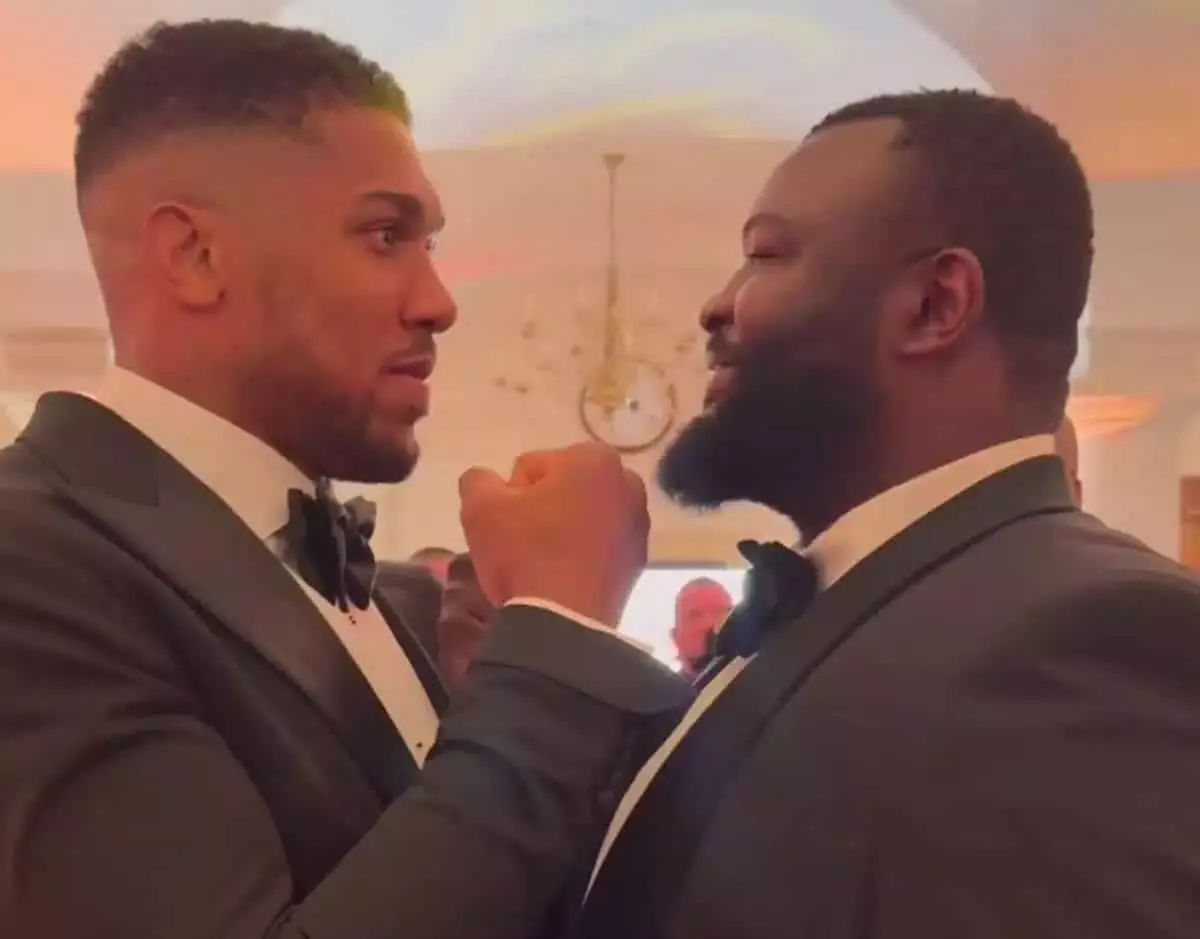In the world of professional boxing, the interplay between ambition and the pursuit of fame often creates intriguing narratives. The ongoing dialogue surrounding heavyweight contenders has brought Martin Bakole to the forefront, particularly in his calls for a match against former champion Anthony Joshua. Eddie Hearn’s comments on Bakole’s intentions, labeling them as clout-chasing, highlight the complexities behind such claims, raising questions about the motivations of athletes within the ring.
Martin Bakole is making waves in the heavyweight division with his unyielding quest for a bout against Anthony Joshua. Currently boasting a professional record of 21 wins and only 1 loss, with 16 of those victories coming via knockout, Bakole is not just looking to ride the wave of Joshua’s fame; he genuinely appears eager for a confrontation in Africa—a location that would invoke echoes of the legendary Rumble in the Jungle, where Muhammad Ali faced George Foreman.
However, Hearn believes that Bakole’s relentless calls for a fight seem more about leveraging Joshua’s name rather than showcasing true intent. Hearn’s comments about Bakole using Joshua’s name for “clout” raise important considerations about the nature of ambition in sports. Is Bakole merely seeking attention, or does he perceive an opportunity that he genuinely wishes to seize? The narrative painted by Hearn serves as a reminder of the skepticism that often surrounds athletes’ motivations, especially when fame is involved.
The history between Joshua and Bakole goes beyond mere verbal challenges; their past sparring sessions have also drawn considerable attention. Hearn recounted an incident where Bakole landed a left hook during their sparring, hinting at his potential to trouble Joshua in a real match. Yet, the way Hearn downplays this anecdote by expressing his inability to recall the details is telling. It shows the duality often present in the fight game: sparring can illuminate capabilities or merely serve as a training tool, depending on the perspective of those involved.
Although Hearn emphasizes Bakole’s ability and acknowledges that he would do the same if in Bakole’s position, this does not negate the significance of Bakole’s skills in the ring. The ambiguity of Hearn’s feelings towards the proposed match raises the question of whether he sees Bakole as a legitimate threat or merely a strategic play within the game. This leaves fans pondering while fueling discussions about Joshua’s current standing in the heavyweight landscape.
The trajectory of Joshua’s career has also come under scrutiny, particularly following his recent defeats. Hearn elucidates Joshua’s strategy of facing lesser opponents after a few tough bouts; this approach is not unfamiliar in boxing, where the stakes are high and reputations are fragile. Financial considerations play a significant role in these decisions, often leading to choices that favor immediate gains over challenging fights. The temptation to continue fighting lesser-known boxers might keep Joshua’s pockets full, but could it be costing him his credibility in the long run?
For Bakole, the appeal of fighting Joshua is not just about clout; it’s also a lucrative opportunity against a fighter whose star may be waning. With Bakole emerging victorious in his own right, the dynamics of their potential fight shift. As Bakole gains momentum, the prospects of Joshua’s success in facing him dwindle, leading to an inevitable question: How long can Joshua’s charisma hold off the pressing tide of interested contenders like Bakole?
As the narrative unfolds, it becomes clear that the clash between Bakole and Joshua transcends mere ambition or opportunism. It epitomizes a larger discourse within boxing surrounding legacy, financial implications, and the very essence of competition. The skepticism surrounding Bakole’s intentions shouldn’t overshadow the fact that he is a serious contender in the heavyweight division. The sport thrives on these confrontations where ambition meets opportunity, creating a thrilling spectacle for fans and a legacy for fighters.
Ultimately, the analysis of Bakole’s intentions and Hearn’s defensive positioning tells us much about modern boxing’s complexities. The longing for grand showdowns remains an indelible aspect of this sport, and the desire for legacy—a battle waged not just in the ring, but also in the fleeting moments of fame outside it—drives these narratives forward. As the heavyweight division evolves, only time will tell if Bakole vs. Joshua becomes a reality, and if so, what that clash would symbolize for both fighters’ futures.


Leave a Reply